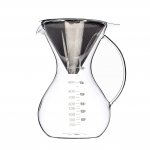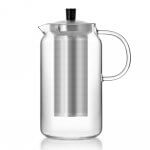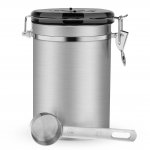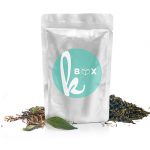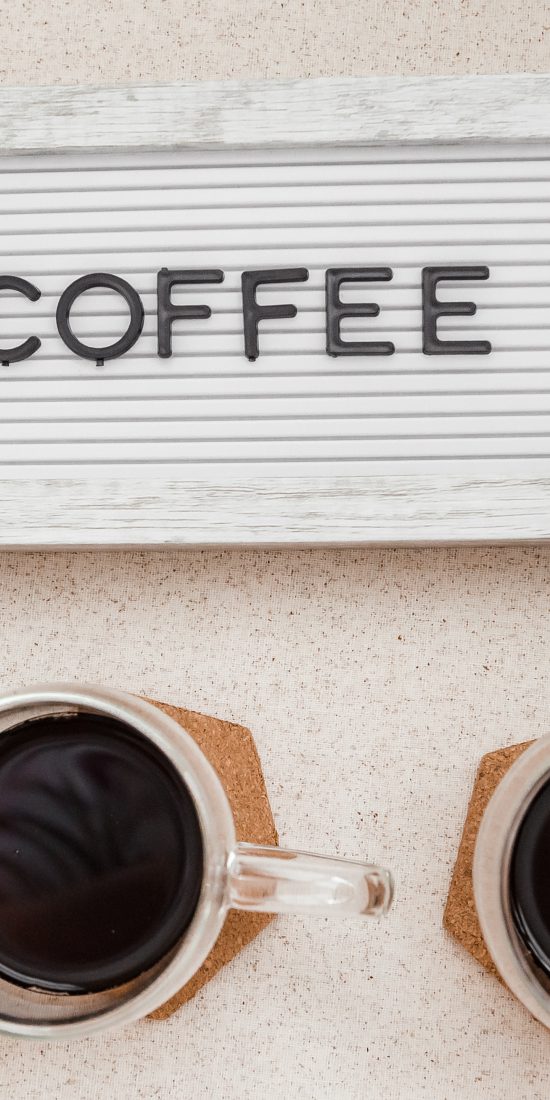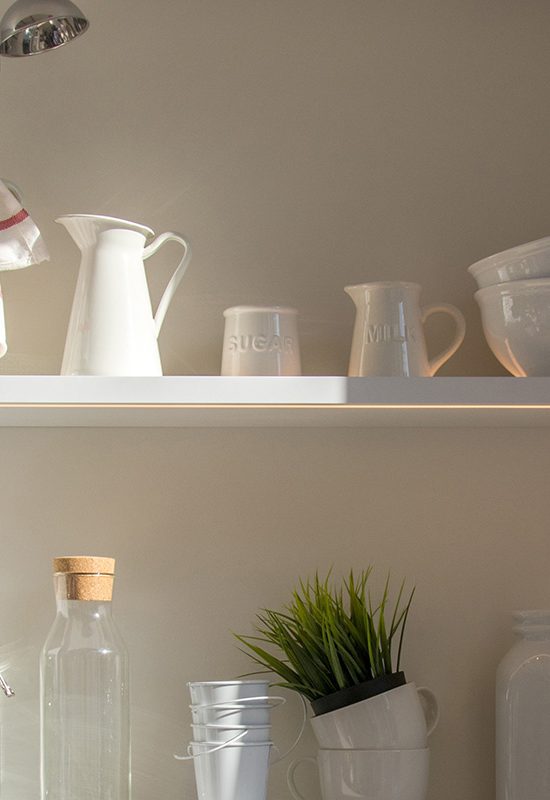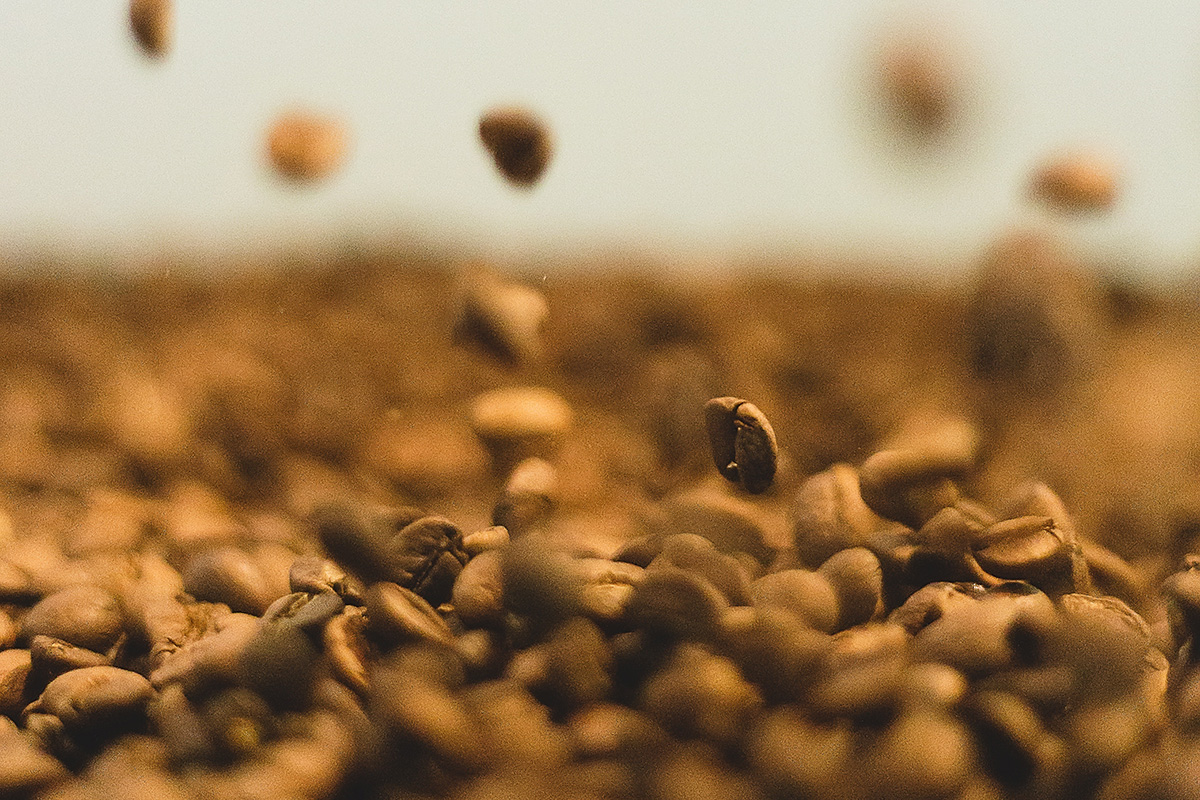
How to Store Coffee Beans to Maximize Freshness and Flavor
If you are a serious coffee lover, chances are you would want your coffee to be as fresh as possible. Of course, you can always drink coffee anytime you like, but the goodness and richness of coffee can truly be found in its freshness so it’s necessary to know how to store coffee beans.
Although several factors affect the freshness of coffee, using quality beans and properly storing them are both essential. You might be one of those who are fond of purchasing coffee beans from a local roaster every week and the idea of proper coffee storage might or might not have occurred to you.

How to Know if the Coffee Beans Are Fresh
First off, you would want to know how to determine fresh coffee beans.
Appearance
Fresh beans have glossy appearance because of the oils that escape from the beans. However, you have to keep in mind that lighter roasts are less glossy because they are not roasted very long while those beans that underwent Swiss Water Decaffeination process won’t appear to be very shiny.
Packaging
When you purchase a specialty grade coffee, sometimes you will notice a small pinhole somewhere on the bag. This is the one-way valve and it’s very crucial to the shelf life of the coffee. When roasting coffee, carbon dioxide is released. Placing freshly roasted coffee in an entirely sealed bag will result in the bag expanding and rupturing.
You can’t just allow the fresh roasts to be exposed to air because it will expedite the staling of the coffee. So to retain the freshness of the coffee while enabling it to de-gas naturally, the one-way valve does the job. The valve permits the carbon dioxide to escape from the bag without letting the oxygen in. The roasters don’t have to worry about the coffee bags bursting at any time.
So basically, coffee beans that are heat-sealed and packaged with a one-way valve are fresher than those canned or fully sealed without a valve.

Which to Choose – Pre-Ground or Whole Beans
There’s this common question of whether you’d go for pre-ground coffee or whole beans. As an important note, pre-ground is not the same as instant coffee. Instant coffee has already undergone more processing, and the brewing only involves pouring hot water on it. On the other hand, brewing pre-ground beans involves sifting the coffee and separating it from hot water.
Now that we got that out of the way, so what’s the best choice? It’s a matter preference. It also depends on your needs as a coffee drinker. Regarding taste, whole beans are, no doubt, more superior because the aromatics are preserved, and the taste is much better than pre-ground. Below are the detailed pros and cons of each.
Pros of Pre-Ground Coffee
- Very easy to prepare so you can save lots of time especially when you’re in a hurry
- Does not require any special equipment or special skill (no need for a coffee grinder; no need to study or master how to produce the right grind of beans)
- Less expensive than whole beans
Cons of Pre-Ground Coffee
- Much bitter-tasting than whole beans
- Pre-ground and packaged way before so the coffee tends to lose its freshness
- No control over the type of grind needed for different kinds of coffee
- Easily contaminated resulting in bad flavor

Pros of Whole Beans
- When ground a few moments before brewing, whole beans taste more flavorful, satisfying, and much superior to pre-ground coffee
- You have the control over how you will grind the beans to suit your coffee needs
- Retains the coffee’s beautiful aroma because it’s fresher
Cons of Whole Beans
- More expensive because of logistics – costs of shipping are high because beans take up more space and need to be transported immediately to avoid staling and contamination
- Needs a bit of skill to master the art of grinding coffee beans (but worth it if you decide to learn how to do it)
- Takes more time than brewing a regular pre-ground coffee so might not be ideal when you’re always in a rush
- Needs additional equipment like a coffee grinder
How to Store Coffee Beans Properly
And now, onto the storage essentials to maximize freshness and flavor!
-
Store beans in an airtight, dark, and cool container.
Keep in mind that coffee beans hate air, moisture, heat, and light. Therefore, you should keep them away from those four elements. Avoid using clear canisters because it will allow light to pass through. Put your container in a dark and cool place in your kitchen and make sure that the sunlight won’t hit it during the day.
Also, keep your beans away from brewers, ovens, stoves as these may emit hot steam. Near your sink is not an ideal location either because moisture or water might accidentally reach the beans.

One example of an excellent container is the Kitchables stainless steel coffee canister. It has a built-in CO2 AirFresh valve, which allows CO2 to escape one-way and with an airtight seal keeping oxygen out (same idea with the coffee packaging mentioned above). It holds up to 0.9lb/14oz ground coffee, or 1lb/16oz coffee beans.
As long as you keep the canister away from heat sources, your beans will stay fresh and the flavor will be maintained for much longer. You can also keep track of the beans freshness with the built-in calendar wheel!
The design is beautifully done and even comes in different colors just like this lavender latte canister. So chic right?

-
Avoid buying coffee beans in big bulks.
As much as possible, only buy beans in the right amount. In an ideal scenario, store only a week’s worth of beans at a time. Try to estimate your weekly consumption and stick to buying just enough. This helps make sure that your coffee is fresh all week long given that you store them properly.
To keep your whole beans fresh, you can also portion them into smaller amounts. Keep some in an accessible area but away from the four elements mentioned earlier (see number 1) and the remaining ones in another airtight container.
-
Only store coffee beans in the freezer when necessary.
There have been many views and opinions published about storing coffee beans in the freezer. It’s again a matter of preference. But if you really want to have the freshest cup of coffee possible every time, you should brew your coffee as soon as possible after it is roasted and avoid storing your coffee in the freezer.
A half-opened bag of beans stored in the freezer won’t taste as good as that of unopened one. Also, coffee acts as a deodorizer and absorbs aromatics so the next time you use your coffee, you might notice that it smells or tastes like whatever else you’ve stored in your freezer or fridge.
However, there are instances when you overestimate your coffee beans supply (intentionally or not) and so it becomes a challenge to store them while keeping them fresh at the same time. In this case, you may choose to freeze your coffee but take note of some key points you may want to apply.

- Choose to store your coffee beans in a deep freezer if it’s available rather than a fridge freezer. The deep freezer doesn’t get opened as much as the one in your fridge.
- Make sure that the coffee bag is sealed and unopened. As mentioned earlier, coffee absorbs aromatics and also moisture which can ruin its rich flavor.
- When getting the beans out of the freezer, let them thaw to room temperature first before brewing and drinking.
- Just quickly get how much you exactly need from the bag and remember not to return them back to the freezer once they have been thawed.
- It’s best to store the beans in their original packaging which is usually either plastic or foil. Don’t store or wrap them in paper.
- Use a resealable freezer-quality bag, container, jar, or other airtight containers to store your bags of coffee beans and remove as much air as possible. This is to avoid freezer-burn.
- Pay attention to the dates. If it has been two weeks and your coffee beans are still in the freezer, then they might not be of any good for drinking anymore.
Remember that freshness is key when making a great cup of coffee so never compromise quality by storing your coffee beans properly!
*Pin for later.


